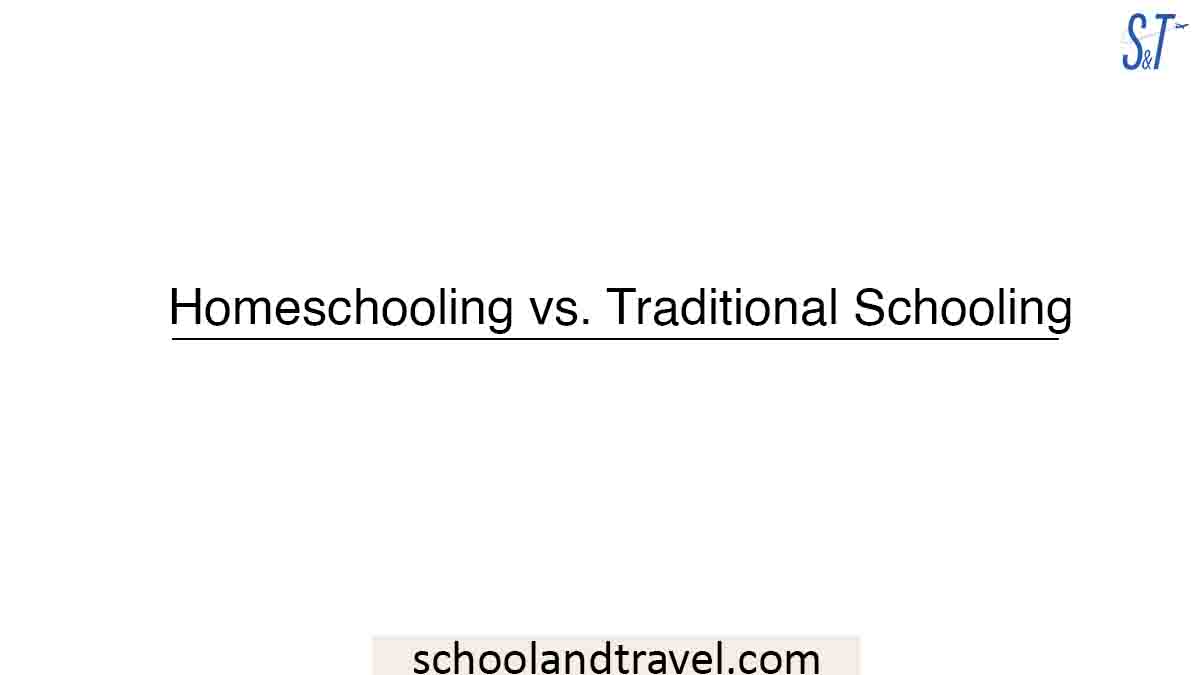The concept of education at home is nothing new since it is the forerunner of an organized school system.
In the modern sense of the word, homeschooling is an alternative to traditional schooling. In some countries, self-directed studying at home is a legal possibility for parents who want to provide their children with education under different circumstances than public or private school institutions.
Motivations can be different: from dissatisfaction with schools in the family’s area to general dissatisfaction with the system in today’s schools.
In most countries where this concept is legally regulated, the personal will of the parents is also a possible reason.
Traditional Schools Compared to Homeschooling
According to a recent homeschool study in the United States, parents have stated the following reasons to have their children homeschooled:
- 33% of respondents indicated that they decided to do so for religious reasons
- 30% of families believe that conditions in schools are poor
- 14% disagree with the school activities and curriculum
- 11% find that students lack academic challenges
- About 9% stated morality as the main reason they want to use this possibility.
Moreover, about 85% of respondents cited safety, drugs, violence, and pressure from other kids in the class as the reasons for deciding to have their kids at a homeschool.
Finally, 72% cited moral and religious reasons as essential. Also, 68% of respondents were dissatisfied with teachers in the public school system.
Pros and Cons of Homeschooling
Flexible learning and leisure schedules are the main advantages of homeschooling since integrity, resourcefulness, and independent thinking require a different environment.
We talked with a parent about this concept and the benefits it brought. She wanted her son and daughter to have (relative) freedom of choice regarding this aspect.
Also, she wanted to be close enough to see their true passions and support them the best way possible.
As a result, they have built mutual trust. Their relationships grow daily as they have learned how to live with each other and treat each other with respect and love.
The intensity of this way of life has made them more aware of their words and actions.
Moreover, a child will not be exposed to the harmful influences of other neglected children. They will not have to fight or experience physical, verbal, or sexual assaults that occur regularly in classic institutions.
In addition, studies show that pupils encounter narcotics and all destructive content for the first time at public schools.
Wrapping it all, the main advantages of this concept are the emphasis on the desired subjects and the absence of unnecessary material, and adaptation to the specifics of the child.
On the other hand, the lack of socialization with peers and some parents are not being educated enough to teach and make the crucial drawbacks. In this situation, it is necessary to offer other forms of communication.
These can be online messages on one of the popular platforms, e-mail or video conferencing, which will enable face-to-face interaction between the teacher and the student. Ultimately, this will reduce the feeling of isolation.
Should We Forget the Regular Schooling Concept?
Traditional school is often considered the basis of a developed and productive society.
Still, this belief usually stems from the following assumption: that those who complete the traditional education system will continue to work and drive the machinery of society to sustain large company profits in a system that requires constant growth.
Instead of supporting and encouraging creatives and people who think outside the box, the system promotes more submissive, obedient, and trained students. Thus, this way, it is ensured that the current system is constantly maintained.
This means that the mainstream model focuses less on each individual and their progress. Instead, the focus is more on creating a “production chain” of workers who will go out into the world and perform their tasks within limits set by the system.
Sir Ken Robinson gave a famous TED talk in 2007 in which he presented his belief that education kills creativity. This video is one of the most-watched TED talk recordings ever and has inspired many to rethink how they will educate their children.
As classic ways are still adapting to the demands of an ever-changing society, many are turning to the homeschool option. This type of studying allows a child to explore more and spend free time in a more quality and efficient manner.
In the United States, about 3.8% of children between the ages of 5 and 17 receive homeschool education.
At the same time, the figure is even lower in Canada, standing at only 1%. On the other hand, there is a tendency for this number to increase globally as more and more individuals worldwide become aware of the limitations of classic studying.
It is important to note that studies conducted in the United States and Canada show that homeschooled children learn more and achieve significantly better results compared to their peers who are educated in classic types of institutions.
About the Author
Berta Graham is an expert with years of experience in education. She regularly writes for papersowl.com, offering all readers her deep knowledge and understanding of the education subject.
Also, she is an accomplished author of books and magazines tackling the sensitive issues of teaching and learning.
Awesome one; I hope this article answered your question.





